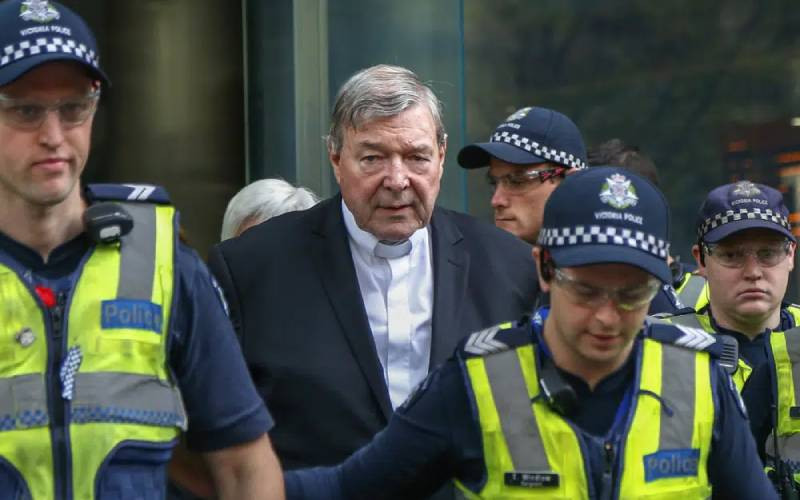×
The Standard e-Paper
Fearless, Trusted News

Cardinal George Pell, a one-time financial adviser to Pope Francis who spent 404 days in solitary confinement in his native Australia before his child sex abuse convictions were overturned, has died at age 81.
He was a divisive figure. He lived to see Vatican rivals charged with financial crimes after he worked to reform the Holy See's finances. In Australia, he was a lightning rod for disagreements over whether the Catholic Church had been properly held to account for historic child sex abuse.